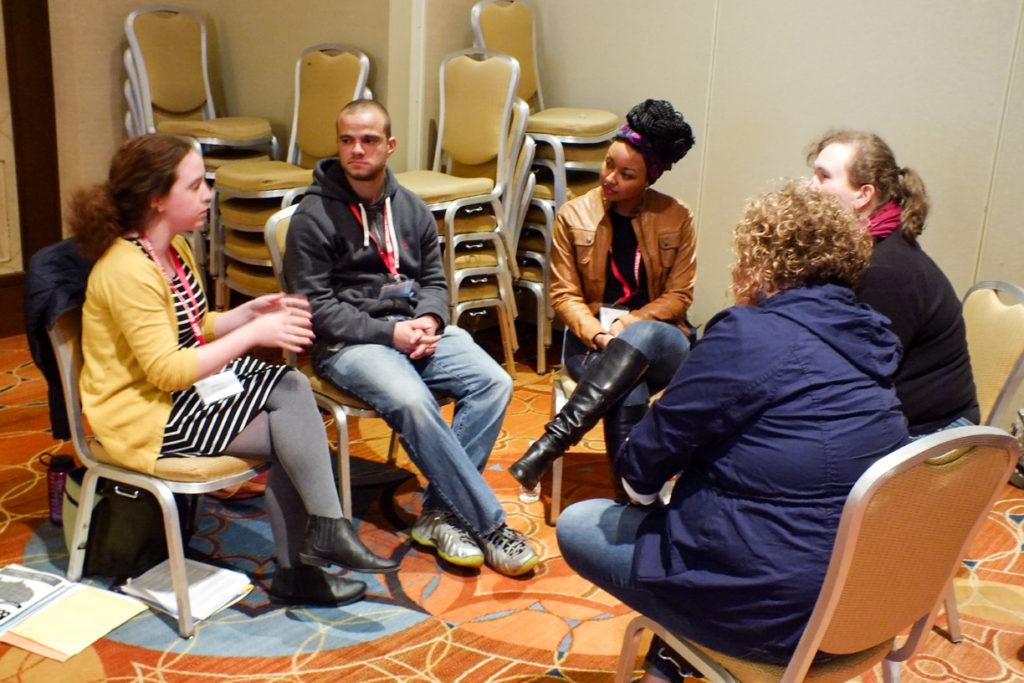
Grinnell’s Office of Intercultural Affairs (OIA) is taking applications for a trip with 13 spots to the 18th annual White Privilege Conference (WPC) this April in Kansas City, MO. The WPC bills itself as a forum for examining concepts of privilege and oppression with a focus on race, as well as providing a training ground for working towards a more equitable society. Spearheaded by Katy Zart, Program Advisor for the OIA, the College will be sending a group of students to the conference for the first time.
White privilege is defined as “a set of advantages and/or immunities that white people benefit from on a daily basis beyond those common to all others. White privilege can exist without white people’s conscious knowledge of its presence and it helps to maintain the racial hierarchy in this country,” according to the Mount Holyoke College website.
Because of the notion that many white people, as well as people who identify with other powerful groups, are unaware of their privilege, Zart hopes that the WPC can be a step towards confronting white privilege at Grinnell.
“I identify as white and I’m working in a role that [focuses on] diversity and inclusion and social justice, and so I was interested in taking students to the White Privilege Conference. … Where I got my masters, they took students every year,” Zart said.
Dr. Eddie Moore Jr. initially founded the conference because he felt that other diversity and social justice-focused conferences were lacking in-depth and advanced understandings of how different forms of oppression work.
“I think one of the most important things about white privilege is it’s a big part of how our nation got started,” Moore said. “I think we have, now in our nation, tried to create a more inclusive and diverse place. But I think why it’s so challenging is that … we’re trying to change a structure that we don’t understand.”
According to Zart, the conference is valuable because it helps students become aware of their identities, which she believes is necessary before being able to make important social change.
“[The conference is] not only about race. They address topics of gender, sexuality, disability and class. All of those issues. And they do that through providing solutions to change and work towards a more equitable world,” Zart said. “[Students] come back with different knowledge and skills that they can apply in their daily lives and in their spheres of influence and in the world.”
Maure Smith-Benanti, Associate Dean of Students and Director of Intercultural Affairs, added that she “believe[s] that once people have more knowledge they’re often sparked to do more or to bring it back to a community that they care about, so hopefully sending students will allow for that.”
In her short time at Grinnell, Zart has noticed that white students are often underrepresented in conversations about social justice.
“I’m at a lot of our Intercultural Affairs events that are on topics of social justice and diversity and inclusion, and a lot of the time we see the same students showing up to those events, and oftentimes those are not students who are white,” Zart said.
Zart hopes the conference will help ensure that more white students became aware of issues like privilege, though she stresses that the conference is intended for students of all races.
“At the conference, even though we name it the White Privilege Conference and we definitely look at white supremacy and white privilege, we also make sure that this a space that everybody is invited to understand that we all have privilege and we all have work to do,” Moore said.
While the deadline for applying was initially Friday, Jan. 27, only 8 applications had been received two days before the deadline, and so the decision was made to push it back to Feb. 3. Zart had hoped that more students would have applied by now and believes one factor to blame is the name of the conference.
“I think [with] the name ‘White Privilege Conference,’ people are like, ‘What in the world is that?’ When I had first told some staff that I was attending, they were like, ‘Oh, really?’ So I think it’s important to make people aware that it’s not a white supremacist conference,” Zart said.
The OIA has received assistance in organizing the trip from Disability Resources, Residence Life and Toby Baratta ’17, the Student Government Association’s Disability and Outreach Coordinator. As for funding, some will come from Zart’s professional development funds, but this will not cover the cost of the entire trip. Therefore Baratta will be applying for funding from the Wilson Center for Innovation and Leadership, but that cannot be submitted until the names of the students attending are finalized. Nonetheless, Zart is confident that the trip will go ahead.
Zart believes that especially in today’s political climate, the conference provides a venue to channel the new commitment towards tackling injustice that many Grinnell students have been feeling.
“Because of the current President’s hateful rhetoric, I think people now more than ever have that fire to improve the world, and they have that fire to create social change where they can,” Zart said.



































































